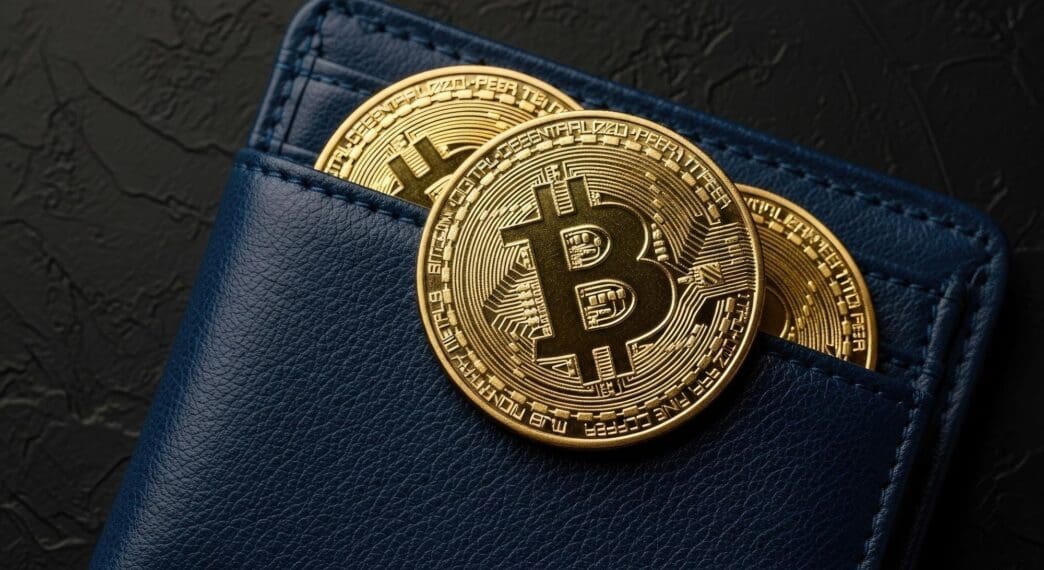Executive Summary
- Bitcoin, Ether, and XRP are experiencing widespread global adoption across diverse sectors, including daily purchases, online retail, travel, and luxury goods, transforming consumer and institutional engagement with digital assets.
- XRP is increasingly utilized for faster, lower-cost cross-border payments, while other cryptocurrencies are being incorporated into corporate treasury strategies for strategic purposes and inflation hedging.
- The mainstream integration of these cryptocurrencies is significantly bolstered by payment processors like PayPal and BitPay, along with evolving regulatory frameworks and technological advancements that simplify crypto transactions for businesses.
The Story So Far
- The increasing mainstream acceptance of Bitcoin, Ether, and XRP by 2025 is largely due to their established brand recognition, liquidity, and distinct functionalities, combined with a robust ecosystem of payment processors that simplify integration and mitigate risk for businesses. This widespread adoption is further facilitated by innovations like automated tax reporting, more open regulatory frameworks, and specialized use cases such as XRP’s efficiency in cross-border payments.
Why This Matters
- The widespread acceptance of Bitcoin, Ether, and XRP across diverse sectors—from daily purchases and online retail to luxury goods and travel—signifies a major shift towards the mainstream integration of digital assets into global commerce. This trend is further bolstered by the increasing institutional adoption of XRP for efficient cross-border payments and the strategic inclusion of cryptocurrencies in corporate treasury portfolios, indicating a deepening financial legitimization. The maturing ecosystem of payment processors and evolving regulatory clarity is crucial in lowering barriers for businesses, ultimately solidifying the role of digital assets in the global financial landscape.
Who Thinks What?
- Many businesses and merchants are increasingly accepting Bitcoin, Ether, and XRP for a diverse range of goods and services, from daily coffee and fast food to luxury items, airline bookings, and online retail, driven by the desire to attract tech-savvy customers and boost sales.
- Payment processors and the financial ecosystem are facilitating this widespread adoption by providing user-friendly tools for businesses to integrate crypto payments, offering instant conversion to fiat to mitigate price volatility, and contributing to clearer regulatory frameworks.
- Institutional users are leveraging XRP for lower-cost, faster cross-border payments and incorporating cryptocurrencies like Bitcoin and Ether into their corporate treasury portfolios for strategic purposes, such as inflation hedging or deeper market involvement.
As of 2025, Bitcoin (BTC), Ether (ETH), and XRP are increasingly accepted across a diverse range of businesses globally, transforming how consumers and institutions engage with digital assets. From daily coffee purchases and fast-food transactions to luxury goods, airline bookings, and cross-border payments, these cryptocurrencies are gaining mainstream traction. This widespread adoption is driven by their strong brand recognition, liquidity, and distinct functionalities, all facilitated by a growing ecosystem of payment processors and innovative financial solutions.
Crypto Goes Mainstream: Everyday Purchases
Paying for daily essentials with cryptocurrency is no longer a futuristic concept. Many coffee shops and convenience stores, including Starbucks via Bitrefill gift cards and Sheetz directly, now accept BTC and ETH for purchases. While XRP tends to lag in direct point-of-sale use for small transactions, directories like Cryptwerk help users find eateries that accept it.
Major fast-food chains like McDonald’s (in crypto-hot zones), Subway, and Burger King also accept crypto payments, often through third-party services or gift cards. Steak ‘n Shake notably rolled out nationwide BTC payments in May 2025, attributing an 11% sales boost to attracting tech-savvy diners. Chipotle and Baskin-Robbins have also integrated ETH, BTC, or XRP payments via BitPay.
Online Retailers and Tech Embrace Digital Assets
Beyond physical stores, major online and tech companies are integrating crypto payments. AT&T allows customers to settle phone bills with ETH or BTC, while Microsoft accepts BTC directly or through processors. Newegg supports ETH for purchases, and Overstock welcomes XRP.
AMC Theatres accepts Bitcoin and other digital assets for various services. E-commerce platforms like Shopify have further democratized crypto usage, enabling millions of small and medium-sized businesses to offer cryptocurrency checkout options. Large retailers such as Home Depot, Lowe’s, and Ikea also accept cryptocurrencies through Bitrefill and BitPay gift cards for home renovation projects.
Traveling and Luxury with Crypto
Airlines and Travel Platforms
The travel industry is increasingly embracing crypto payments for bookings. Platforms like Travala.com allow travelers to book flights and hotels using BTC, ETH, and many other digital assets. Emirates is set to partner with Crypto.com to accept crypto for first-class seats, while AirBaltic has been accepting crypto since 2014, processing thousands of transactions.
Alternative Airlines stands out by supporting over 600 airlines globally and allowing payments with more than 100 cryptocurrencies, including XRP, providing extensive options for crypto-funded travel.
High-End Brands and Automotive
Luxury brands and automotive dealerships are also entering the crypto payment space. Post Oak Motor Cars in the US accepts Bitcoin for super-luxury cars via BitPay, and in Europe, BitCars offers a crypto-only marketplace for premium and classic vehicles. High-end fashion brands like Gucci and Ralph Lauren continue to expand their crypto payment options at select flagship stores for their exclusive collections.
Institutional Adoption and Treasury Strategies
XRP’s Role in Cross-Border Payments
Beyond consumer transactions, the unique strengths of BTC, ETH, and XRP are evident in institutional use cases. XRP, with its consensus-based ledger and Ripple’s infrastructure, is particularly positioned for lower-cost, faster settlement of cross-border transfers. Businesses such as Mercury FX and Cuallix have adopted or trialed XRP for these applications.
Corporate Treasury Holdings
Some companies are strategically including crypto in their treasury portfolios. Firms like BitMine, SharpLink Gaming, and VivoPower hold cryptocurrencies for strategic purposes, inflation hedging, or to deepen their involvement in the digital asset market.
Facilitating Adoption: Payment Processors and Innovation
The widespread acceptance of cryptocurrencies is significantly bolstered by user-friendly technologies and a maturing financial ecosystem. Payment processors like PayPal, BitPay, Coinbase Commerce, CoinGate, and NOWPayments make it easier for businesses of all sizes to integrate crypto payments. These platforms often instantly convert cryptocurrencies into fiat, mitigating the risk of price fluctuations for merchants.
The development of automated tax reporting systems and more open regulatory frameworks further reduces the financial and legal burdens on small business owners. As technical barriers are lowered and compliance is simplified, businesses can confidently accept a broader range of digital assets.
The Path Ahead
The growing acceptance of Bitcoin, Ether, and XRP across diverse sectors in 2025 underscores a significant shift in finance and commerce. This trend is set to continue as technological advancements, regulatory clarity, and the inherent advantages of digital assets drive further integration into everyday transactions and institutional operations.







